Find Help
More Items From Ergsy search
-
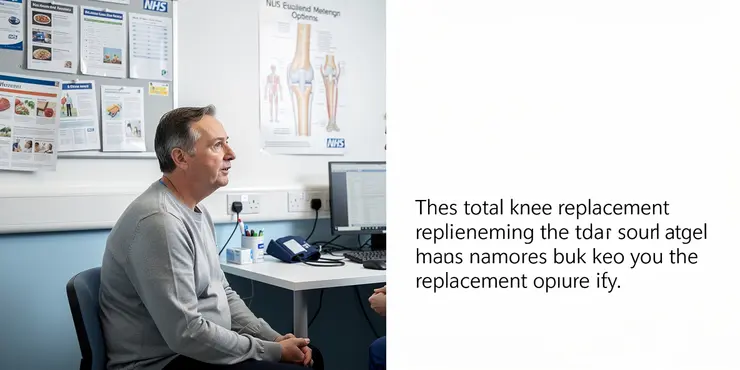
Total Knee Replacement
Relevance: 100%
-
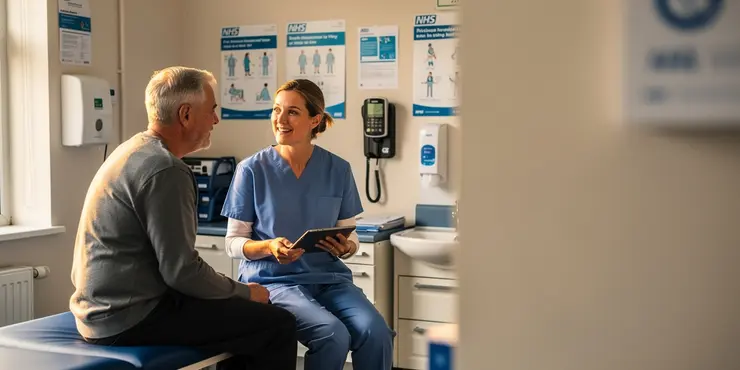
Total knee replacement
Relevance: 100%
-
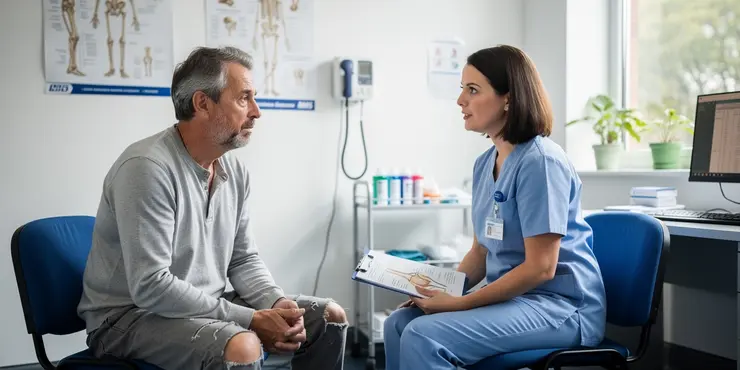
Knee replacement
Relevance: 76%
-

Total Hip Replacement
Relevance: 60%
-
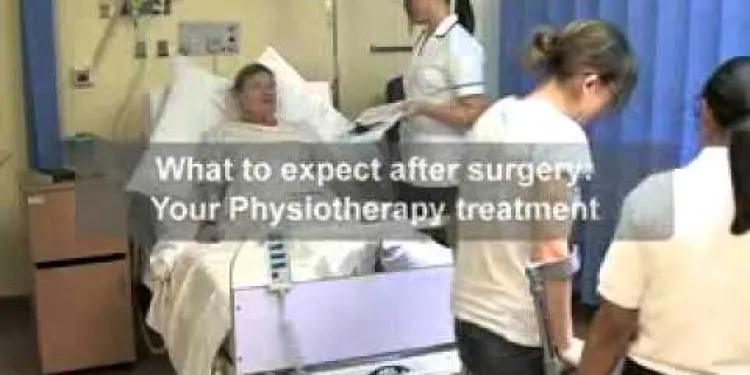
Total hip replacement
Relevance: 57%
-

Total hip replacement at Northumbria Healthcare
Relevance: 53%
-

Your anaesthetic choices for your planned hip or knee replacement surgery at the RUH.
Relevance: 45%
-
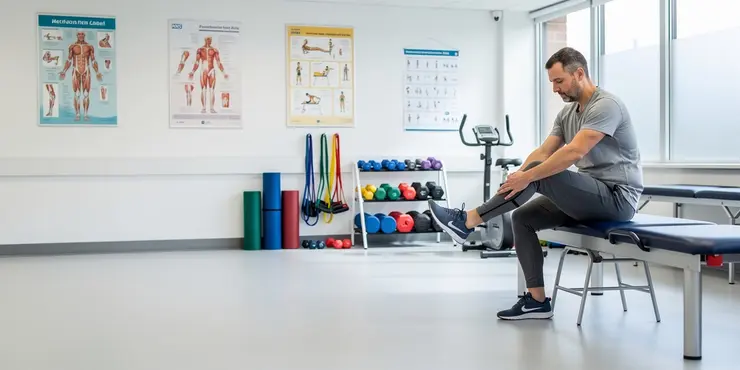
Joint School - Knee Exercises
Relevance: 42%
-

Knee Care Exercises
Relevance: 41%
-

What is a hip replacement?
Relevance: 33%
-
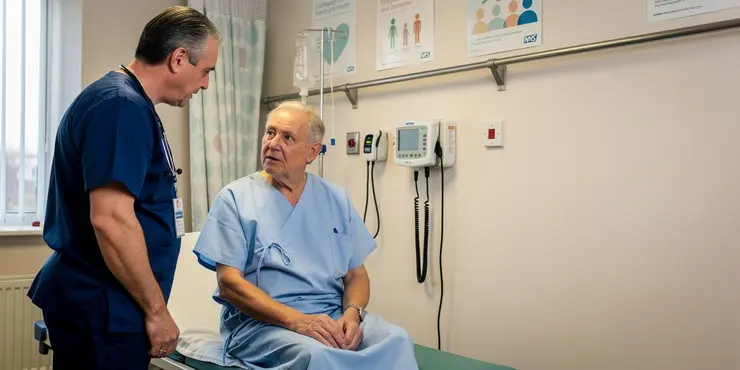
How long does a hip replacement surgery take?
Relevance: 32%
-
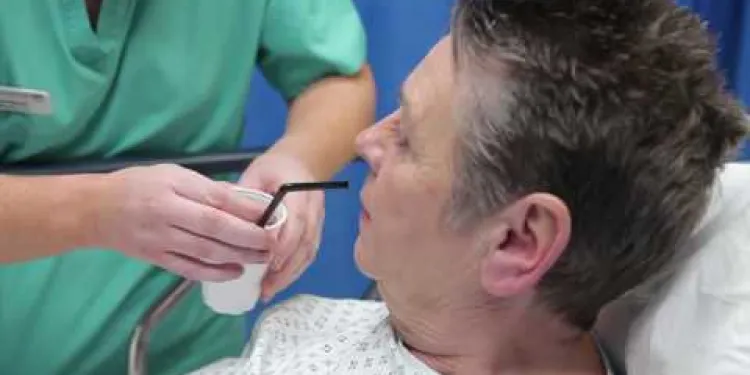
Hip replacement
Relevance: 30%
-

NHS Pension - Total Rewards Statement Explained
Relevance: 30%
-
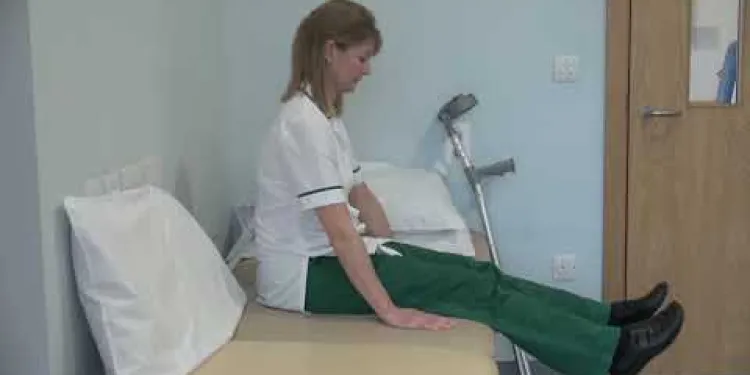
Hip replacement - getting into bed
Relevance: 28%
-

Do I need a Hip Replacement?
Relevance: 27%
-
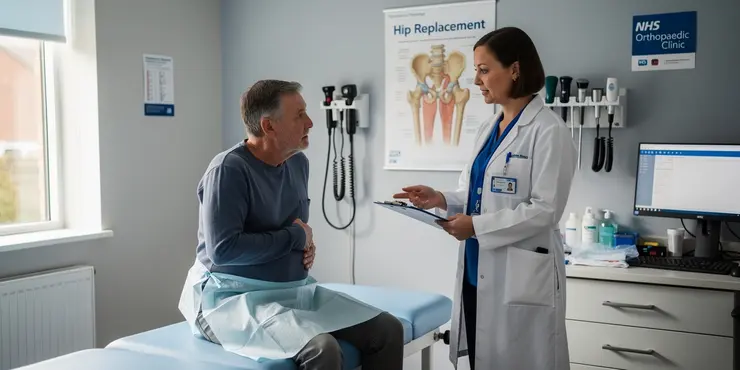
How much does hip replacement surgery cost in the UK?
Relevance: 27%
-
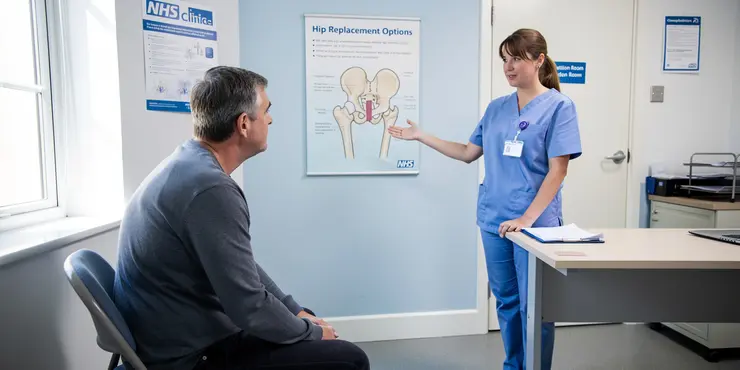
Can both hips be replaced at the same time?
Relevance: 26%
-

Would a wealth tax replace other taxes in the UK?
Relevance: 26%
-

Does the energy price cap guarantee my total bill?
Relevance: 25%
-

How much is being refunded in total by the UK water companies?
Relevance: 25%
-
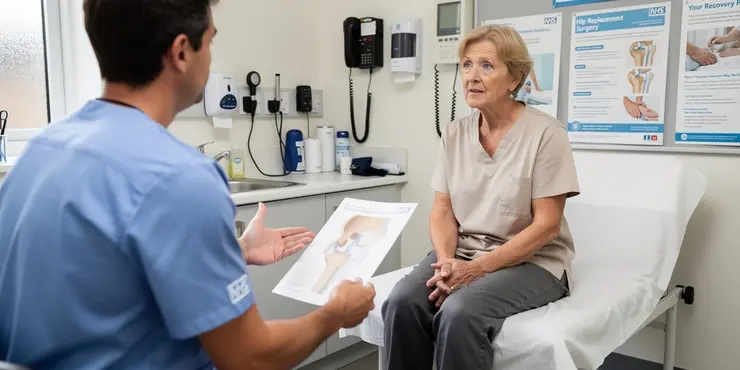
What is minimally invasive hip replacement surgery?
Relevance: 23%
-

What is the recovery time for a hip replacement?
Relevance: 23%
-
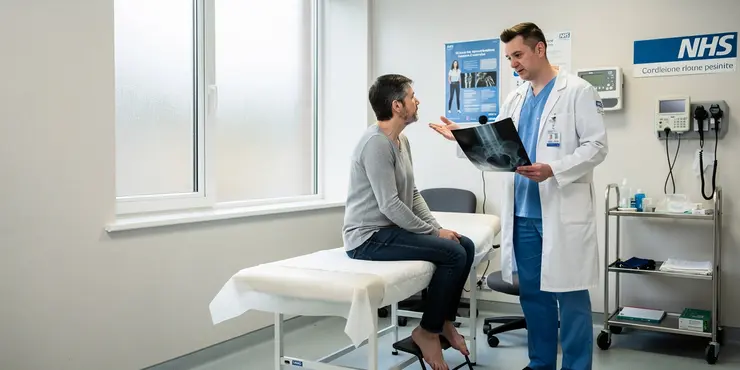
What are the risks associated with hip replacement surgery?
Relevance: 23%
-
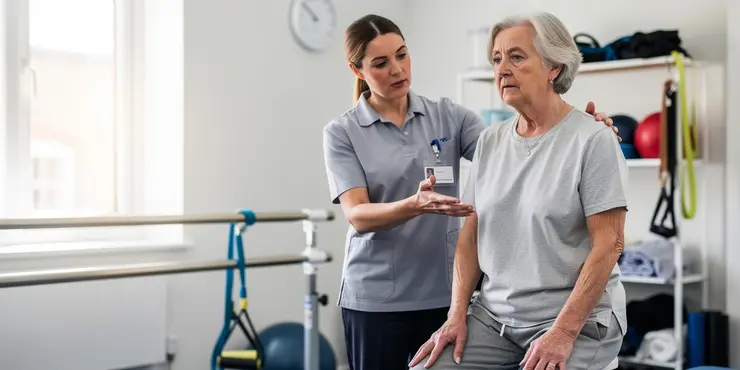
Will I need physical therapy after a hip replacement?
Relevance: 22%
-

What type of anaesthesia is used during hip replacement surgery?
Relevance: 21%
-
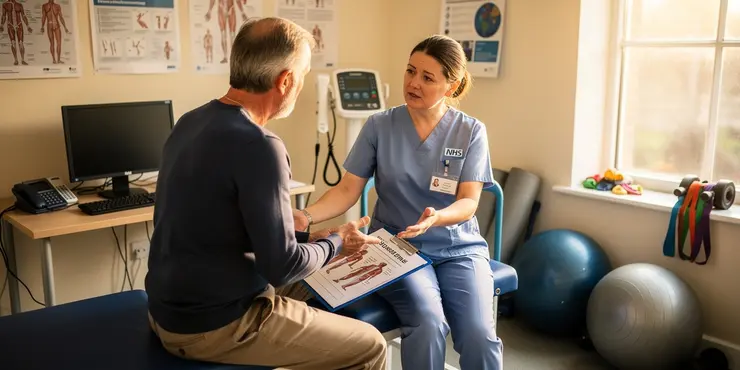
How do I prepare for hip replacement surgery?
Relevance: 21%
-
Is hormone replacement therapy safe for menopause masking?
Relevance: 21%
-

How long does it take to recover from a hip replacement operation?
Relevance: 20%
-
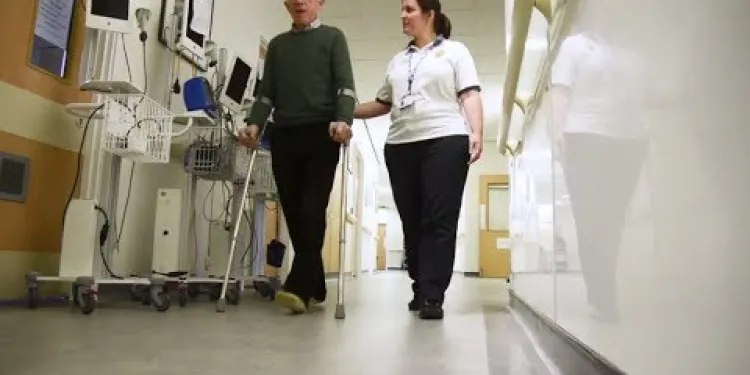
Having a hip replacement - Part Two: Recovery
Relevance: 20%
-
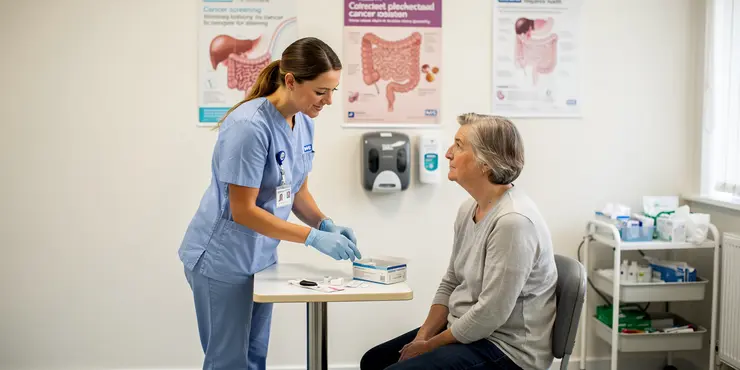
Can home colorectal cancer tests replace a colonoscopy?
Relevance: 19%
-

Will the digital driving license replace the physical card?
Relevance: 19%
-
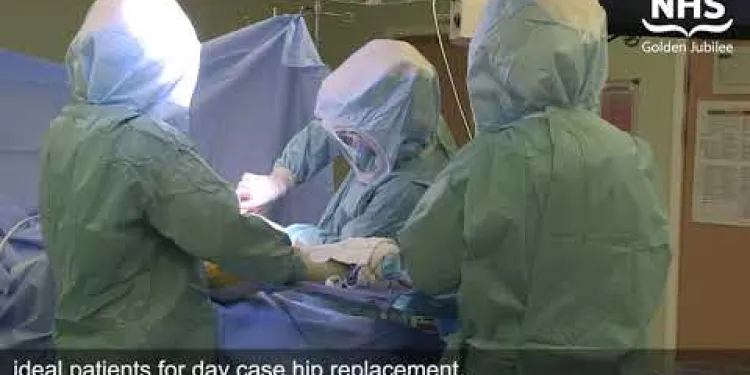
Same day discharge for NHS Golden Jubilee’s hip replacement patients
Relevance: 19%
-

How long do hip replacement implants last?
Relevance: 18%
-

Can hormone replacement therapy (HRT) impact dementia risk?
Relevance: 18%
-
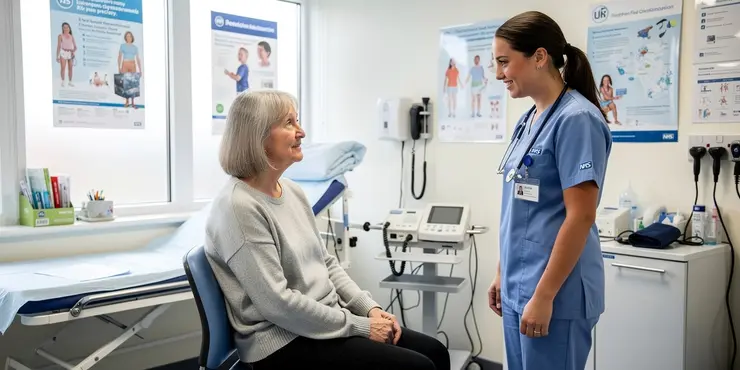
Can makeup with SPF replace sunscreen?
Relevance: 18%
-
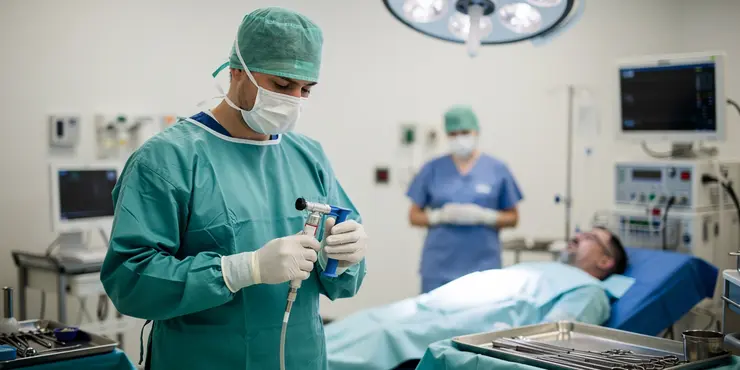
What is bone cement?
Relevance: 17%
-
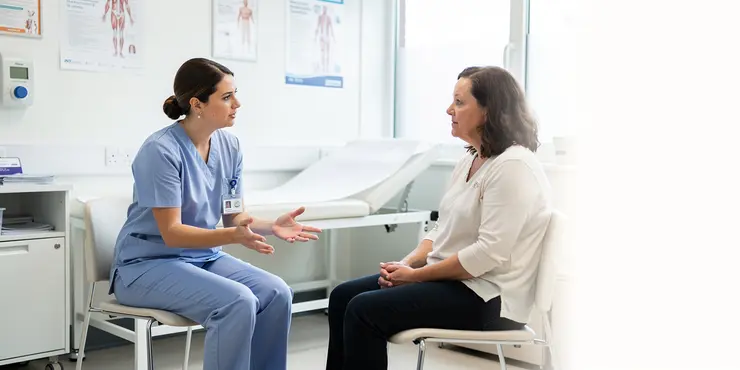
Can lifestyle changes replace the need for weight loss jabs?
Relevance: 17%
-
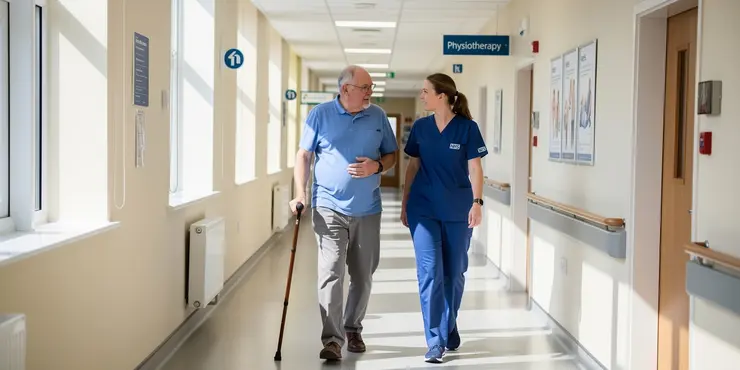
Will I be able to return to normal activities after hip replacement?
Relevance: 17%
-

ACL pre-operation exercises
Relevance: 15%
-

Who is a candidate for a hip replacement?
Relevance: 15%
Total Knee Replacement: An Overview
Understanding Total Knee Replacement
Total knee replacement, also known as knee arthroplasty, is a surgical procedure performed to replace a damaged or diseased knee joint with an artificial prosthesis. This procedure is commonly recommended for patients suffering from severe arthritis or knee injury that significantly hampers their quality of life and mobility. In the UK, the National Health Service (NHS) provides comprehensive care and support for patients undergoing this surgery.When is Total Knee Replacement Recommended?
Total knee replacement is typically advised when non-surgical treatments, such as physical therapy, medications, or less invasive surgeries, have failed to alleviate knee pain and improve function. Common conditions that may necessitate this procedure include osteoarthritis, rheumatoid arthritis, and post-traumatic arthritis. Patients often experience chronic pain, stiffness, and swelling that limit daily activities like walking, climbing stairs, or even sitting and standing.The Surgical Procedure
During a total knee replacement, the surgeon removes the damaged cartilage and bone from the surface of the knee joint and replaces it with metal and plastic components. These artificial parts are designed to mimic the natural movement of the knee. The surgery generally lasts between one to two hours, and it is performed under general or spinal anaesthesia. Patients typically stay in the hospital for a few days following the operation.Recovery and Rehabilitation
Post-surgery, patients will undergo a structured rehabilitation programme to regain strength and mobility in the knee. Physiotherapy plays a crucial role in the recovery process, with exercises tailored to improve range of motion, strength, and flexibility. In the UK, the NHS provides extensive outpatient physiotherapy support to ensure a smooth and effective rehabilitation. Most patients can resume normal activities within six weeks, although full recovery may take up to a year.Risks and Complications
As with any major surgery, total knee replacement carries certain risks and potential complications. These may include infection, blood clots, implant loosening, or nerve damage. However, advancements in surgical techniques and post-operative care have significantly reduced the incidence of such complications. Patients are encouraged to discuss any concerns with their surgeon and follow the pre- and post-operative guidelines carefully to minimize risks.Quality of Life Post-Surgery
Total knee replacement has been shown to significantly enhance the quality of life for many patients. Most individuals report substantial pain relief, improved joint function, and a greater ability to engage in daily activities. While the artificial joint has a lifespan of about 15-20 years, many patients enjoy long-term benefits from the procedure. Regular follow-up appointments with the healthcare team ensure ongoing monitoring and management of the knee prosthesis. For more information on total knee replacement, patients in the UK are advised to consult with their GP or visit the NHS website for detailed resources and support.Total Knee Replacement: An Overview
Understanding Total Knee Replacement
Total knee replacement is a surgery where doctors fix your knee by putting in a new, artificial part. This new part helps if your knee is hurt or very sick from arthritis. Arthritis can make your knee very painful and hard to move, stopping you from doing things you enjoy. In the UK, the NHS helps people before and after this surgery.When is Total Knee Replacement Recommended?
Doctors might suggest this surgery when other treatments like exercise, medicine, or smaller surgeries don’t help your knee pain. This kind of pain can happen because of wear and tear or other kinds of damage in your knee. People have this surgery because their knee hurts, stays stiff, or gets swollen, making it hard to walk, climb stairs, or even sit and stand.The Surgical Procedure
During the knee surgery, the doctor takes out the bad parts of your knee and puts in new metal and plastic parts. These new parts help your knee move properly again. This surgery takes about one to two hours. You will probably stay in the hospital for some days to make sure you start healing well.Recovery and Rehabilitation
After the surgery, you will have exercises to help your knee get strong and move easily again. This is called physiotherapy. The NHS has special physiotherapists to help you with this. Most people can go back to their normal activities after about six weeks, but it can take up to a year to feel fully better.Risks and Complications
Like any big surgery, knee replacement can have problems. These problems might be infections, blood clots, or issues with the new knee parts. But don’t worry, as doctors are very careful and do a lot to keep you safe. Always talk to your doctor if you have questions or worries. Following the doctor’s advice before and after surgery helps keep risks low.Quality of Life Post-Surgery
Many people feel much better after knee replacement. They often have less pain and can do more everyday activities. The new knee part usually lasts about 15 to 20 years, but many people feel benefits for a long time. It's important to check in with your doctor regularly to ensure everything is going well with the new knee. If you want more information about knee replacement, talk to your GP or check the NHS website for more help and resources.Frequently Asked Questions
What is total knee replacement surgery?
Total knee replacement surgery is a procedure where damaged cartilage and bone from the surface of the knee joint are removed and replaced with artificial implants to restore function and relieve pain.
Who is an ideal candidate for total knee replacement?
Ideal candidates are individuals with severe knee arthritis or significant knee damage who experience chronic pain, reduced mobility, and have not responded to conservative treatments such as medications, physical therapy, or lifestyle changes.
How long does the surgery take?
Total knee replacement surgery typically takes about 1 to 2 hours, although this can vary based on the complexity of the case and the surgeon’s experience.
What can I expect during the recovery period?
Recovery involves a combination of rest, physical therapy, and gradual return to activities. Most patients begin walking with assistance the day after surgery, and full recovery can take anywhere from 3 to 6 months.
What are the risks associated with knee replacement surgery?
Risks include infection, blood clots, implant loosening, knee stiffness, and damage to surrounding nerves or blood vessels. These complications are relatively rare and can often be managed effectively.
How long does a knee replacement last?
Modern knee replacements typically last 15 to 20 years, although outcomes can vary based on the patient’s activity level, weight, and other factors.
Will I be in pain after the surgery?
Some pain and discomfort are common in the initial weeks following surgery, but pain management techniques, including medications and physical therapy, are used to help manage this.
Can I kneel after having a total knee replacement?
While kneeling can be uncomfortable for some patients, many people can learn to kneel again with time and practice. It's important to follow your surgeon's advice on this matter.
How will I manage daily activities immediately after surgery?
You may need assistance with daily activities in the initial recovery period. Occupational therapists can provide guidance on adaptations and techniques to maintain independence as much as possible.
When can I return to work after knee replacement surgery?
The timeline for returning to work varies based on the individual and the type of job. Office workers may return in 4 to 6 weeks, while those with more physically demanding jobs may need to wait 3 months or longer.
Will I need physiotherapy after surgery?
Yes, physiotherapy is crucial for a successful recovery. A tailored rehabilitation programme will help you regain strength, flexibility, and range of motion in your knee.
What do I need to do to prepare for knee replacement surgery?
Preparation may involve medical evaluations, stopping certain medications, physical exercises to strengthen muscles, and arranging for post-surgery support at home.
Are there alternatives to total knee replacement?
Yes, alternatives include medications, physical therapy, weight loss, injections, and less invasive surgeries such as partial knee replacement or arthroscopy, depending on the severity and location of the knee damage.
Can I drive after having a knee replacement?
You can typically start driving again 4 to 6 weeks after surgery, once you are no longer taking narcotic pain medications, and you feel confident in your ability to control the vehicle safely.
How do I choose the right surgeon for my knee replacement?
Consider factors such as the surgeon’s experience, the number of knee replacements they perform annually, patient reviews, and their affiliation with reputable hospitals or clinics. You may also want to seek a second opinion to ensure you are making an informed decision.
What is Total Knee Replacement Surgery?
Knee replacement surgery is an operation. Doctors fix your knee. They give you a new knee joint. This helps you move better and feel less pain.
Tips to help understand:
- Ask questions if you are unsure.
- Use pictures or videos to see how the surgery works.
- Talk to someone who had a knee replacement.
- Ask a helper or friend to read with you.
- Take notes to remember what you learn.
Total knee replacement surgery is a way to fix a bad knee. Doctors take out the hurt parts of the knee and put in new fake parts. This helps the knee work again and stop hurting.
Who should get a new knee?
Some people need a new knee. These people often: - Have a really sore knee. - Find it hard to walk or do things every day. - Have tried other help, but it's not working. - Talk to a doctor to see if getting a new knee is right for them. - Using tools like walking sticks or talking to a therapist can help.
Ideal candidates are people with very bad knee arthritis or a lot of knee damage. They are in pain, can't move well, and have not gotten better with medicine, exercises, or lifestyle changes.
How long is the surgery?
Getting a new knee in surgery usually takes 1 to 2 hours. But it might take more or less time. This depends on how tricky the surgery is and how much the doctor knows.
What happens when you are getting better?
Getting better takes time. You need lots of rest. You might go to see a physical therapist, who helps you move safely. Slowly, you can start doing your normal activities again.
Most people start walking with help one day after their surgery. It can take 3 to 6 months to feel all better.
What are the dangers of knee surgery?
Knee surgery can help, but it also has risks. Risks are things that might go wrong. Here are some dangers:
- Knee might hurt.
- Knee could get stiff.
- Knee might get infected (germs make it sick).
- Knee may not work right.
- Blood might not move well, causing clots (blocks in blood flow).
It's important to talk to your doctor. Ask lots of questions so you understand. You can bring someone to help you understand, like a friend or family member. Taking notes or using pictures can make it easier to know what's happening.
There are some risks. Sometimes, people can get an infection. Blood clots might happen. The implant could get loose. The knee might feel stiff. There could be damage to the nerves or blood vessels nearby. But don't worry, these problems are not common and doctors can usually help if they happen.
How long does a knee replacement last?
A new knee can be good for a long time. Most new knees can work well for about 15 to 20 years.
To keep a new knee strong and healthy, try to:
- See your doctor for check-ups.
- Do special exercises to help your knee.
- Be careful with heavy lifting.
It can help to use tools like videos or pictures to learn more.
Most new knee replacements last 15 to 20 years. How long they last can change based on how active you are, your weight, and other things.
Will I hurt after the surgery?
After the surgery, you might feel some pain. This is normal.
The doctor will give you medicine to help you feel better.
If it hurts a lot, tell a nurse or a doctor.
Talking about your feelings can also help.
You can use a soft pillow or listen to calming music to feel more comfortable.
After surgery, it is normal to feel some pain and discomfort for the first few weeks. Doctors give medicine and use other ways to help with the pain, like physical therapy.
Can I kneel after getting a new knee?
If you have had surgery to get a new knee, you might wonder if you can kneel down. Here are some things to think about:
- You should talk to your doctor. They can tell you what is safe for you.
- It might feel different to kneel down after surgery. Some people find it uncomfortable.
- Your doctor or therapist can show you how to kneel safely.
It is important to take care of your new knee. Always ask questions if you are unsure about doing something.
Using special knee pads or cushions can make kneeling feel better.
Kneeling might not feel nice for some people. But, many can learn to do it again with time and practice. Make sure to listen to your doctor's advice.
How can I do everyday things after my surgery?
You might need help with everyday tasks at first while you get better. Occupational therapists are people who can show you ways to do things by yourself. They teach you how to use tools and tricks to stay as independent as you can.
When can I go back to work after knee surgery?
When you go back to work depends on your job and how you feel. If you work in an office, you might go back in 4 to 6 weeks. If your job needs you to do heavy lifting or hard work, you might need to wait 3 months or more.
It’s important to listen to your body and what your doctor says. Take your time and don't rush back if you're not ready.
If you find reading or understanding hard, try using a text-to-speech tool. This helps by reading words out loud to you. Also, highlighting text as you read can help you keep your place.
Do I need help with moving my body after my operation?
Some people might need help with moving their body after they have surgery. This is called 'physiotherapy.' A therapist will show you exercises to get stronger and move better. You can ask your doctor if you need this.
If reading is hard, try using:
- Audio books: Listening to a book can be easier than reading it.
- Voice typing: Speak into the phone or computer, and it types what you say.
Yes, physiotherapy is very important for getting better. Special exercises will help your knee get strong, bendy, and able to move easily again.
How can I get ready for knee surgery?
If you are going to have surgery on your knee, here are some simple steps you can follow:
- Talk to your doctor. Ask any questions you have.
- Eat healthy food. It can help your body heal.
- Exercise gently. Try walking or stretching.
- Rest well. Sleep helps your body get strong.
- Plan for help at home. Ask family or friends to assist you.
Using pictures or videos can help you understand better. You might also use audio tools to listen to information instead of reading it.
Before your surgery, you might have some health checks. You may need to stop taking some medicines. It's a good idea to do exercises to make your muscles strong. You should also plan for some help at home after your surgery.
What can you do instead of getting a new knee?
Yes, there are different ways to help. You can take medicine, do exercises, lose weight, get shots, or have a smaller surgery like fixing just part of the knee. What you choose depends on how bad the knee problem is and where it hurts.
Can I drive after a new knee?
You had an operation to get a new knee. Now, you want to know if you can drive a car.
- Ask your doctor when it is safe to drive.
- Practice moving your new knee. This helps you drive safely.
- See if your car seat is comfortable for your knee.
- Try out short trips first.
- Use Google Maps for easy directions.
Remember, only drive when you feel strong and safe.
You can usually start driving again 4 to 6 weeks after your surgery. This is when you have stopped taking strong pain pills. You should also feel sure that you can drive safely.
How do I pick the best doctor for my knee surgery?
Picking the right doctor for your knee surgery is important. Here are simple tips to help you:
- Ask your family and friends if they know a good doctor.
- Check if the doctor has done many knee surgeries before.
- See if the doctor is kind and listens to your questions.
- Make sure the doctor works in a good hospital.
- Look at reviews from other patients online.
- Talk to your regular doctor for advice.
Support tools like picture guides or videos may help you feel more comfortable. You can also ask someone you trust to go with you to meetings with the doctor.
Think about things like how much practice the doctor has, how many knee surgeries they do each year, what other patients say about them, and if they work at good hospitals or clinics. You can also ask another doctor for advice to make sure you choose the right one.
Useful Links
This website offers general information and is not a substitute for professional advice.
Always seek guidance from qualified professionals.
If you have any medical concerns or need urgent help, contact a healthcare professional or emergency services immediately.
Some of this content was generated with AI assistance. We’ve done our best to keep it accurate, helpful, and human-friendly.
- Ergsy carfully checks the information in the videos we provide here.
- Videos shown by Youtube after a video has completed, have NOT been reviewed by ERGSY.
- To view, click the arrow in centre of video.
- Most of the videos you find here will have subtitles and/or closed captions available.
- You may need to turn these on, and choose your preferred language.
- Go to the video you'd like to watch.
- If closed captions (CC) are available, settings will be visible on the bottom right of the video player.
- To turn on Captions, click settings .
- To turn off Captions, click settings again.
More Items From Ergsy search
-

Total Knee Replacement
Relevance: 100%
-

Total knee replacement
Relevance: 100%
-

Knee replacement
Relevance: 76%
-

Total Hip Replacement
Relevance: 60%
-

Total hip replacement
Relevance: 57%
-

Total hip replacement at Northumbria Healthcare
Relevance: 53%
-

Your anaesthetic choices for your planned hip or knee replacement surgery at the RUH.
Relevance: 45%
-

Joint School - Knee Exercises
Relevance: 42%
-

Knee Care Exercises
Relevance: 41%
-

What is a hip replacement?
Relevance: 33%
-

How long does a hip replacement surgery take?
Relevance: 32%
-

Hip replacement
Relevance: 30%
-

NHS Pension - Total Rewards Statement Explained
Relevance: 30%
-

Hip replacement - getting into bed
Relevance: 28%
-

Do I need a Hip Replacement?
Relevance: 27%
-

How much does hip replacement surgery cost in the UK?
Relevance: 27%
-

Can both hips be replaced at the same time?
Relevance: 26%
-

Would a wealth tax replace other taxes in the UK?
Relevance: 26%
-

Does the energy price cap guarantee my total bill?
Relevance: 25%
-

How much is being refunded in total by the UK water companies?
Relevance: 25%
-

What is minimally invasive hip replacement surgery?
Relevance: 23%
-

What is the recovery time for a hip replacement?
Relevance: 23%
-

What are the risks associated with hip replacement surgery?
Relevance: 23%
-

Will I need physical therapy after a hip replacement?
Relevance: 22%
-

What type of anaesthesia is used during hip replacement surgery?
Relevance: 21%
-

How do I prepare for hip replacement surgery?
Relevance: 21%
-
Is hormone replacement therapy safe for menopause masking?
Relevance: 21%
-

How long does it take to recover from a hip replacement operation?
Relevance: 20%
-

Having a hip replacement - Part Two: Recovery
Relevance: 20%
-

Can home colorectal cancer tests replace a colonoscopy?
Relevance: 19%
-

Will the digital driving license replace the physical card?
Relevance: 19%
-

Same day discharge for NHS Golden Jubilee’s hip replacement patients
Relevance: 19%
-

How long do hip replacement implants last?
Relevance: 18%
-

Can hormone replacement therapy (HRT) impact dementia risk?
Relevance: 18%
-

Can makeup with SPF replace sunscreen?
Relevance: 18%
-

What is bone cement?
Relevance: 17%
-

Can lifestyle changes replace the need for weight loss jabs?
Relevance: 17%
-

Will I be able to return to normal activities after hip replacement?
Relevance: 17%
-

ACL pre-operation exercises
Relevance: 15%
-

Who is a candidate for a hip replacement?
Relevance: 15%


